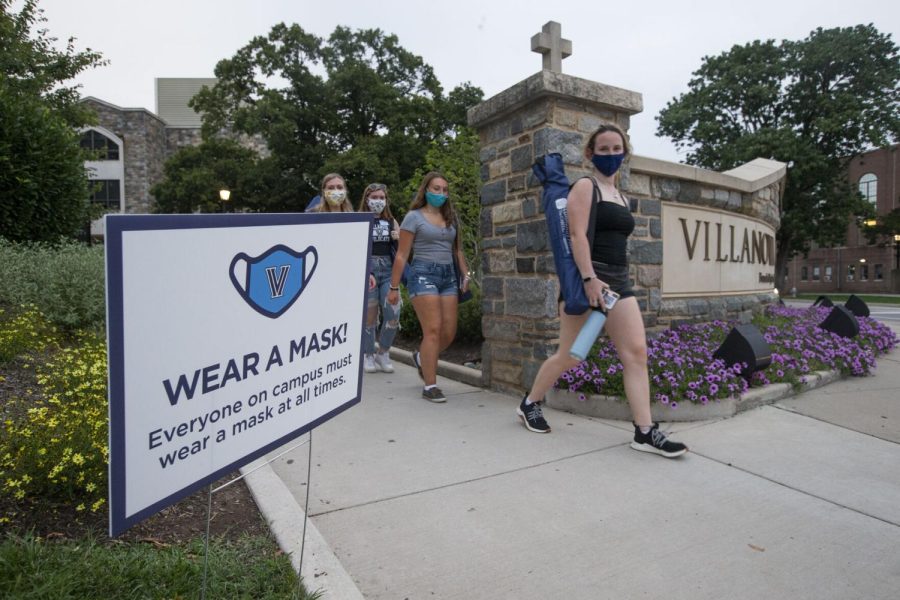Student Responsibility During the Time of COVID-19
Courtesy of The Philadelphia Inquirer
Student Responsibility During the Time of COVID-19
September 9, 2020
Responsibility is a scary word for any college student. It piles up in syllabi, calls from parents and general expectations of our growing place in the world. The pandemic has added another layer of nuance to the responsibility that college students share, and no case better shows this than Northeastern’s dismissal of 11 freshmen who violated the school’s social distancing guidelines.
Obviously, Twitter users held a thought-provoking and civil discussion about the role of
institutional obligations versus youth versus the role of community safety, and obviously, this is sarcasm.
Word limits and hashtags do not promote the careful gradation of consideration that this
situation deserves.
In the case of these Northeastern students, they signed a contract stating that they would abide by rules issued by their administrators. Their administrators agreed tocreate comprehensive safety measures that if followed would keep their community safe. Even the parents had to sign a statement saying they understood the risks and accepted that students could be sent home, forsaking tuition, if they violated the rules. These 11 students violated the rules, got caught and were sent home.
Beyond this case, there is a strong desire to pin all of the blame for university shutdowns on the students who violate the rules.
“Do you really want to be the reason that Tulane and New Orleans have to shut down again?” Tulane’s Dean of Students said.
“Prove them wrong,” University President Peter M. Donohue, PhD, O.S.A., said.
We all laughed at videos of UNC freshmen making water slides and saw evidence of our own freshmen gathering. Other sophomores and myself used our six months of seniority on this campus to blame them as the reason we could be sent home.
However, that’s not entirely fair. Students absolutely should carry some of the responsibility for keeping themselves and those around them safe. Those who break the rules deserve to be sent home. However, new studies about the coronavirus and containment come out every day. Harvard and Yale recently published a joint study on how frequent and strategic surveillance testing is needed to figure out which students are sick before they infect others. Debate still rages about the safety of dining halls,
shared bathrooms and indoor classroom space.
Institutions do share some of the responsibility for keeping us safe. In UNC’s case, the Dean theorized that certain aspects of dorm living, like communal bathrooms, were ultimately what allowed cases to spread unchecked. However, in Notre Dame’s case, a two-week lockdown of online classes allowed the school to get a handle on the cases.
Most colleges have created contact tracing departments who work quickly to notify the potentially infected friends and lunch buddies of a sick student, but students can make it easier by being strategic about with whom they keep company. It’s a strange semester, Villanova, but we can make it a good one.


